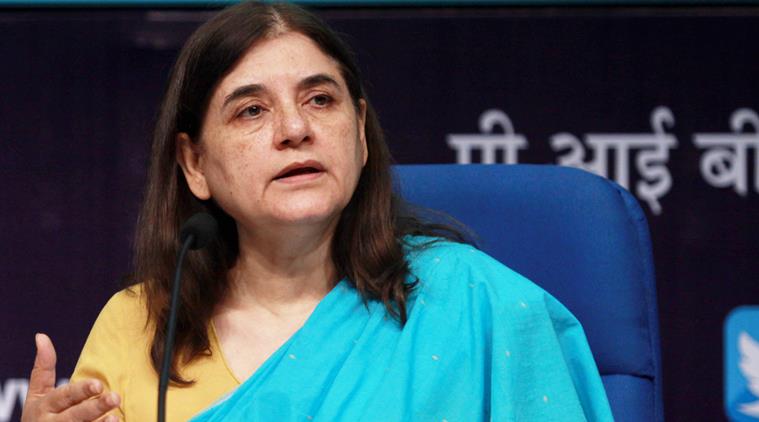 Union Women and Child Development Minister Maneka Gandhi. (File photo)
Union Women and Child Development Minister Maneka Gandhi. (File photo)
The National Council on India’s Nutrition Challenges has rejected Woman and Child Development Minister Maneka Gandhi’s longstanding, much-debated proposal to provide packaged nutrients to replace the existing take-home rations across 14 lakh-odd anganwadis in the country.
The decision was taken at this month’s meeting of the National Council led by NITI Aayog Vice-Chairperson Rajiv Kumar.
This was the first meeting of the council since it was formed and given the mandate to handle the Union government’s recently launched National Nutrition Mission through inter-ministerial interventions.
Under the existing Supplementary Nutrition component of the Integrated Child Development Services (ICDS) scheme run through anganwadi centres, infants under three years and pregnant and lactating mothers are given take-home rations while three- to six-year-olds are fed hot cooked meals. It is aimed at preventing child-maternal mortality and child malnutrition. Over the last couple of years, Maneka has been trying to push her plan to provide factory-made bar-coded nutrient packages through post offices and do away with the system of providing take-home rations through aganwadis.
Referring to Maneka’s proposal, the minutes of the first meeting, released this week, states, “The Chairman brought out that the council had received a reference from the Hon’ble Minister of WCD with respect to administration of Supplementary Nutrition i.e. its composition and delivery. The Chairman drew attention to the PMO decision in this regard and the need for continuance of the existing practice of Hot Cooked Meals for children (0-3 years) age group and Take Home Ration (THR) for children (6-3 years) and pregnant women and lactating mothers as decided by the state government in conformity with the National Foods Security Act 2013 and the Supplementary Nutrition Rules 2017. This view was endorsed unanimously by the Council.”
A NITI Aayog member told The Indian Express, “The Council has reiterated the existing guidelines should be followed, stipulations that require the state government to run the scheme through self-help groups etc. We don’t want to change that.”
Though Maneka was absent from the meeting, it was attended by other ministers such as Hardeep Singh Puri and Ram Vilas Paswan, with the latter explicitly taking a stand in favour of empowering aganwadi workers and providing the meals and rations “to the beneficiaries through local self-help groups and ensuring region-location based recipe / dietary diversification”.
Incidentally, on April 18, the day the meeting of the Council was held, a strong letter of protest against Maneka’s proposal was sent to the Union government. There were 118 signatories including leading rights groups and individuals working on issues relating to health, women, children and adivasis.
The letter emphasised the need to ensure that children and women get nutritious food through ICDS and warned against the move to go for processed foods, which have been linked to rise in non-communicable diseases. It held that packaged food would also mark a shift to centralised control by private contractors, which has been banned by the Supreme Court.
The decision puts to an end a long-drawn disagreement between Maneka and NITI Aayog, with the former batting for packaged nutrients and the latter wanting to substitute food with cash given to beneficiaries through direct benefit transfer. In a small victory for the NITI Aayog, the Council has given the go-ahead for it to initiate cash transfer schemes on a pilot basis in 10 districts.